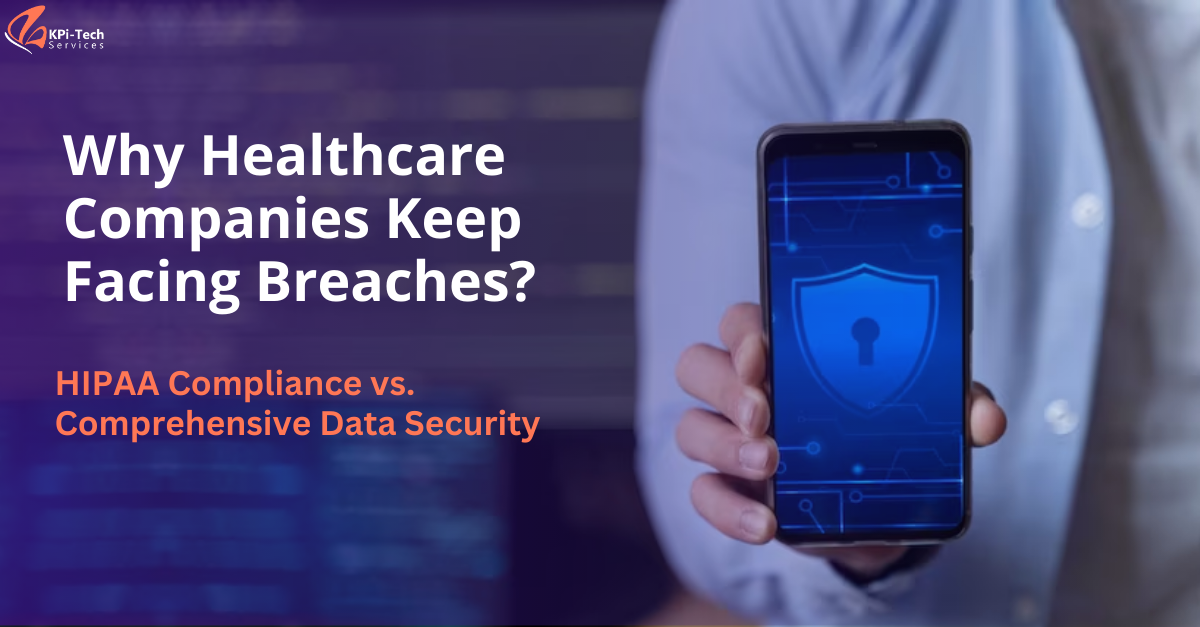
Healthcare Security Breaches: What's Behind the Continuing Problem?
Demystifying HIPAA: Compliance vs. Comprehensive Data Security
Despite meeting regulatory mandates, a whopping 93% of healthcare institutions have fallen victim to data breaches in the last three years, with 57% suffering more than five breaches during this period. This concerning pattern of recurrent and severe breaches prompts a fundamental question: why do healthcare data breaches persist, especially in light of the Health Insurance Portability and Accountability Act (HIPAA), a widely recognized yet often misinterpreted data protection law that imposes significant penalties for violations?
Why Do Cyber Attackers Focus on Healthcare?
Cybercriminals profit from selling various types of personal data on the dark web, but among these, healthcare records stand out as an especially lucrative target. While social security numbers may fetch around $1 each and credit card details can range from $5 to $100, medical records hold significant value, often commanding thousands of dollars. What sets medical records apart is their immutability; cybercriminals can exploit them for fraudulent insurance claims, obtaining medications, and engaging in illicit activities. Safeguarding this data is of utmost importance.
HIPAA Compliance: A Crucial Step, but Not the Whole Data Security Solution
HIPAA contributes to the protection effort, but there's a common misconception that compliance and security are one and the same. This is not accurate. While there is some overlap between the two, HIPAA primarily establishes minimal requirements for healthcare providers to safeguard sensitive patient data, serving as a foundational guideline rather than an exhaustive security solution. Unfortunately, this misunderstanding has led some organizations to mistakenly believe that meeting HIPAA's basic standards ensures comprehensive data security.
Why is Healthcare Prone to Security Risks?
Several factors contribute to the intricate security challenges healthcare organizations face, including the deep trust placed in electronic health record (EHR) systems and the ongoing dependence on outdated legacy systems. Securing EHR systems effectively often proves challenging due to a lack of expertise, and legacy systems, no longer supported by their original manufacturers, present persistent vulnerabilities that are hard to address. The sprawling nature of IT infrastructure adds to the complexity, with data scattered across data centers, the cloud, file servers, storage, smartphones, laptops, and more.
Cybercriminals frequently employ social engineering and ransomware, necessitating robust solutions for healthcare organizations. Additionally, software supply chain attacks, wherein attackers exploit compromised vendors or partners, are on the rise. Nevertheless, internal risks, including human error and insider threats, can be just as detrimental as external threats. Mishandling data, weak access controls, and cloud misconfigurations can expose data to potential breaches, while disgruntled or opportunistic employees with access to sensitive information pose significant concerns.
Related: Safeguarding Health Apps: Your Definitive Guide to HIPAA Compliance
How Can Healthcare Institutions Enhance Data Security Beyond HIPAA?
Addressing these challenges necessitates a comprehensive data security strategy that extends beyond the confines of HIPAA regulations. Organizations should institute a robust training program to educate employees about recognizing potential security threats and comprehending the rationale behind specific security protocols. Implementing stringent access controls is equally crucial to restrict employees' access to data, ensuring that insiders cannot reach information or systems that are unnecessary for their roles. Monitoring user activities can provide valuable assistance by detecting unusual behavior, such as an IT employee attempting to access human resources or financial data.
With the rising incidence of third-party breaches, it becomes imperative for healthcare entities to rigorously evaluate prospective Healthcare IT partners and vendors to ascertain their capability to safeguard the data they handle. Equally vital is the need for organizations to establish effective and thoroughly tested backup and recovery systems in anticipation of potential ransomware attacks or other incidents. Importantly, these protective measures and backup systems should encompass all data repositories, not solely those known to contain sensitive data. As systems become increasingly interconnected due to interoperability needs, healthcare institutions must embrace a more holistic security approach to prevent attackers from gaining access through inadequately protected systems.
Related: The Crucial Role of Employee Security Awarenes
Move Beyond Mere HIPAA Compliance
Numerous of these measures are in harmony with the stipulations laid out in HIPAA, but some go beyond HIPAA's framework and progress toward a more extensive security strategy. Entities that are solely focused on satisfying compliance requirements will swiftly discover that the minimal benchmarks set forth by HIPAA fall short in the present intricate and demanding threat environment. Employee education, behavioral monitoring, access management, and other actions are not merely advisable—they are indispensable and foundational steps essential for aiding healthcare institutions in confronting the progressively sophisticated threats of today.





